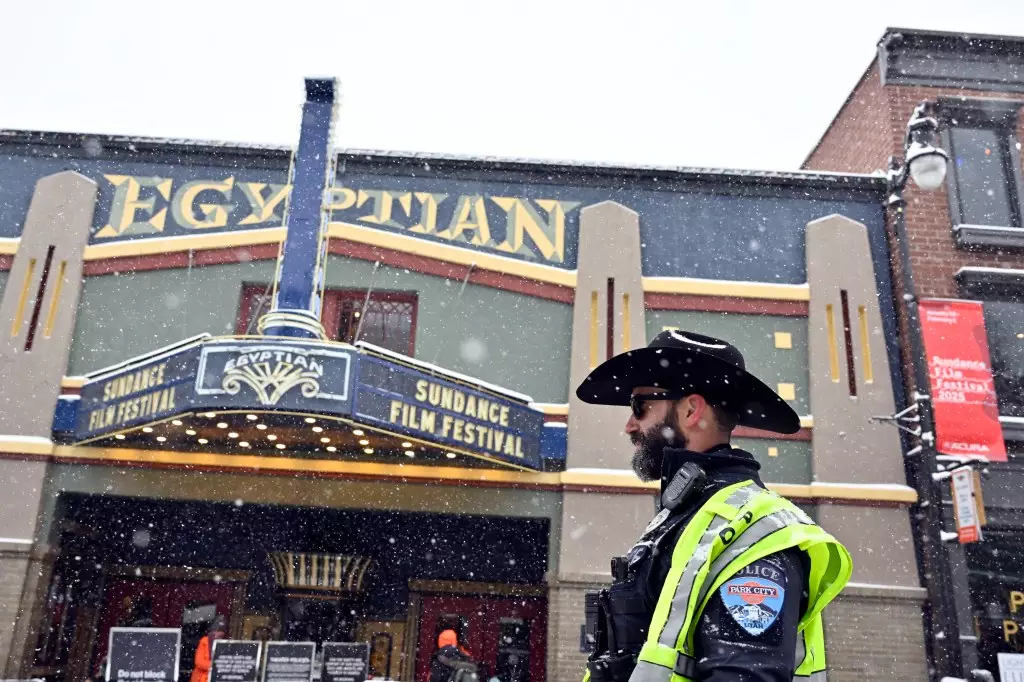The tension between progressive ideals and conservative legislation is reaching a breaking point in Utah, with the future of the Sundance Film Festival hanging in the balance. Mayor Nann Worel’s recent statements about the challenges faced by the festival highlight a troubling predicament that could signal the end of an era in Utah’s cultural landscape. Just as Worel and a cohort of local officials worked tirelessly to reshape the festival’s future in the state, a legislative bill that aims to ban the Pride Flag from public buildings threatens to unravel years of progress.
This politically charged environment is not new to Sundance, which has long been a beacon of inclusivity and artistic expression. However, the introduction of House Bill 77, which explicitly prohibits the display of LGBTQ+ flags and banners, serves as an unsettling reminder of the divide between Utah’s conservative legislative body and the values that Sundance embodies. It paints a grim picture of a community torn between its cultural identity and the unyielding grip of political dogma.
The Economic Incentive vs. Cultural Values
As discussions intensify around Sundance’s future, the economic implications of potentially relocating the festival are equally compelling. Worel highlighted the massive financial stakes involved: Sundance is more than just a festival; it is a multibillion-dollar driver of the local economy. While Utah Governor Spencer Cox has instituted a hefty $3.5 million incentive to keep Sundance in the state—a bid to ensure that tax revenue and employment benefits remain intact—the motivation feels hollow in light of the state’s recent legislative actions.
The stark contrast between financial gain and cultural integrity begs the question: is it possible for Utah to retain Sundance while simultaneously alienating its core values? The answer seems increasingly elusive as political winds shift in favor of restrictive legislation, leaving the festival’s enduring legacy at risk. The concerns are further amplified by competing cities like Boulder, Colorado and Cincinnati, Ohio, which are actively courting Sundance with promises of a friendlier atmosphere that aligns more closely with the festival’s ethos.
City Leaders Speak Out Against Discriminatory Practices
The rhetoric surrounding House Bill 77 has sparked considerable backlash from local leaders and activists. Salt Lake City Mayor Erin Mendenhall has voiced her strong opposition to the bill, framing it as an affront to the very essence of what makes Sundance a cherished institution. Her criticisms echo a sentiment shared by many: if Utah continues to endorse such exclusionary policies, it risks becoming a pariah in the cultural arena.
It is a frustrating, almost paradoxical reality that the very forces seeking to safeguard traditional values might be responsible for the displacement of an iconic festival that has brought visibility and economic vitality to the state for decades. This conflict highlights an ideological struggle that is playing out on a broader national stage, as the battle for inclusivity and recognition clashes with regressive mindsets.
Art as a Reflection of Community Values
Worel’s statements about the future of Park City and Sundance reflect the deep-rooted connection between art and community values. While she expressed pride in the town’s efforts regardless of the festival’s future, her tone suggested a looming sense of inevitability. There’s a profound sadness in watching a promising collaboration dissolve under the weight of discriminatory laws. The proposed anti-Pride legislation isn’t just a policy change; it’s a betrayal of the fundamental principles of artistic expression and acceptance.
This issue resonates far beyond the boundaries of Utah. As the nation grapples with issues surrounding LGBTQ+ rights, the implications of legislative actions like House Bill 77 serve as a bellwether for how far art communities can thrive in environments that do not embrace diversity. The artistic legacy of Sundance is not merely about what films are screened; it’s about creating a culture that values all voices, a mission that becomes increasingly difficult to uphold in an oppressive legislative climate.
Local Responses and Hopes for the Future
Despite the impending challenges, local initiatives and grassroots movements continue to mobilize against these regressive measures. Advocacy groups and concerned citizens are joining forces to push back against House Bill 77, signaling a commitment to fight for the values that underpin both Utah’s identity and the legacy of the Sundance Film Festival.
As the March deadline for Governor Cox to sign or veto the bill draws near, the urgency for mobilization grows. The stakes have never been higher; the choice he makes could very well dictate the trajectory of not just the festival, but the future of inclusive practices in Utah at large. There remains hope, however, that the community will rise to the occasion, reminding politicians that art is not just a revenue stream but the lifeblood of a vibrant and progressive society.

